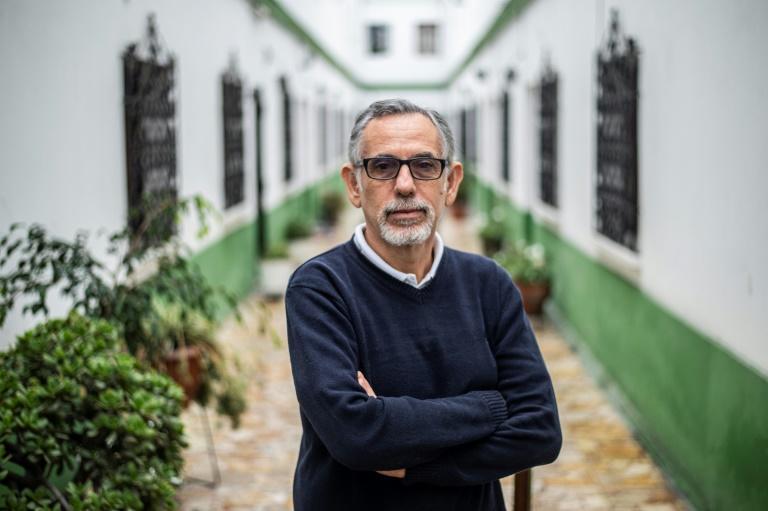RIO DE JANEIRO, BRAZIL – Pedro Castillo has caused uneasiness among Peru’s economic elite. The populist leftist candidate, who won the most votes in last Sunday’s elections and is waiting for the electoral court to resolve the annulments of tables requested by his opponent, Keiko Fujimori, does not easily speak on the phone.

The country’s big entrepreneurs, accustomed to a direct line to power, suddenly find themselves with a possible president they know nothing about and who is not easy to reach. They have not met him at any entrepreneurial event. To fill this gap emerged Pedro Francke, a 60-year-old economist and university professor with a reputation in business circles.
Francke joined Castillo as an economic consultant after the rural professor’s alliance with Veronika Mendoza, a more urban-focused leftist politician. In doing so, he aimed to attract the middle class that might have been intimidated by proposals similar to those of other Latin American countries ruled by authoritarian leaders. Francke was a high-level official in the governments of ex-presidents Alejandro Toledo and Ollanta Humala.
He knows the mechanisms of power. Since his arrival, the candidate has softened many of his initial proposals. “There will be no nationalizations, expropriations, or price controls. We are a little more in favor of the market,” explained the advisor to Spain’s El Pais newspaper.
This tones down Castillo on the platform during his campaign. He was virtually unknown in January when he toured all over Peru with an anti-establishment message. He frequently attacked foreign investment at his rallies and called to protect the domestic market by raising tariffs. Mining companies, he said, had their days numbered. Their wealth does not benefit the poor, Castillo said.
These anti-free-market messages alarmed the business community, which supported Fujimori en masse. Among them were some anti-fujimorists who considered Keiko’s election a lesser evil. Francke believes that Castillo was someone seeking attention: “He said all this when he didn’t have a very strong candidacy.”
At the gates of the Government Palace, the rural school teacher got this far, hand in hand with a party that declares itself Marxist-Leninist, the Peru Libre (Free Peru). With Francke, this revision of transnationals contracts or hypothetical nationalizations became a new tax on mining companies’ profits, something that President Humala wanted to do and entrepreneurs rejected. He believes that now the time is different.
“The difference is that the price of copper, our main export, is very high, and international analysts say this will last. It’s not a thing of the year, there are reasons like China’s growth, Joe Biden’s (U.S. president) policy, and a big technological change due to the high demand for copper for electricity. I estimate that companies, in copper alone, will have an additional revenue of US$9 billion. So Peru can say ‘share a little more’.”
He sees the business community as being open to this negotiation. For instance, Roque Benavides, one of the country’s top mining entrepreneurs. “He has publicly stated that yes, in fact, one needs to understand the conditions. One can negotiate. They are getting US$5 billion more than they had thought,” he adds. And he clarifies: “That is taxing them, but not in the sense of stripping them of their property.”
In his first debate with other candidates, Castillo began by saying that he would propose writing a new constitution. This implies a long process to secure a majority in Congress – unlikely -, call for a referendum and convene a Constituent Assembly. What exactly do you mean when you say that the government should have more power over the economy? “The current Constitution,” Francke explains, “there are some restraints that hinder some measures. It says that foreign investment has the same rights as domestic investment. No constitution on the American continent has such an article.”
In other words, Castillo’s economic sage believes the text has an ideological slant. “So it is. If the left wins, let it be able to implement leftist policies. With some limits, of course. Like, for example, the autonomy of the central reserve bank. Yes, that should be maintained because it is the balance of powers and the overall management of economic institutions. But with these other aspects, I don’t understand why it is good for a constitution to say that foreign investment must be equal to the national investment,” he argues.
The dollar reached its highest quotation in Peru after Castillo’s victory. Now it seems to have stabilized. Francke’s visibility was crucial for this. The economist says that the minimum wage will not be changed because of the poor financial moment companies are experiencing with the pandemic. The private pension system will not be eliminated, which had lead some workers to fear for the future of their savings. But Franke will try to reform it because he considers that the current system is inefficient.
On the subject of imposing tariffs on certain products, this is something he is not ruling out, as in the case of potatoes. There is rarely a rally in which Castillo does not refer to the fact that Peruvian producers’ potatoes were rotting because they could not sell them.
“There should be a reasonable limit. We wouldn’t go back to the 70s, when the tariff was 70%, because of the international treaties we have and because it’s not convenient (…). But we import 30,000 tons of frozen potatoes. Peru, with a little effort, could produce them itself.”
Source: El Pais

